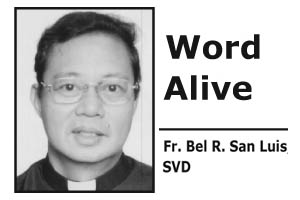TWO weeks from today, it will be Palm Sunday, the first day of Holy Week traditionally celebrated with big crowds of the faithful waving palm leaves – coconut fronds in the Philippines – in commemoration of Jesus’ entry into Jerusalem.
There will be no such crowds this year, not here in the Philippines and not in the Vatican itself, in all of Italy, in Spain, and the rest of Europe. As early as last March 7, Pope Francis announced that he will no longer be appearing from the window of his study overlooking St. Peter’s Square in the Vatican, in order to discourage crowds from gathering.
Churches all over the world have since followed his example. Churches remain open but the people are asked not to gather in them as much as possible in the face of the coronavirus. Europe has become the epicenter of the pandemic, according to the World Health Organization, after it appeared to have been abated in China. Italy has the most cases in Europe, followed by Spain, France, Germany, and now new cases have been reported in the rest of Europe, in Australia, in North and South America, and in Asia,
The United States, the world’s top national economy, said last week that all its 50 states now have COVID-19 cases, as West Virginia reported its first one. The US reported over 13,000 cases with over 200 deaths as of Wednesday and its Centers for Disease Control banned gatherings of more than ten people and urged people to avoid going to public places like parks, gyms, and restaurants.
These are basically the same instructions issued by President Duterte for the people of the Philippines, starting with the lockdown or quarantine for Metro Manila on March 15, followed the next day by all of Luzon, and finally a state of calamity for the entire country.
The reason for all these restrictions is that COVID-19 virus is known to spread from person to person through droplets in the breath of an infected person. The contagion will stop when the virus can no longer transfer to a new victim. This is the reason people must avoid physical contact and maintain “social distancing.”
It is hoped that with the presidential orders closing most government offices and business enterprises, and stopping all public transportation, people will stay home and thus avoid that physical contact that makes it possible for the virus to find a new host.
The Christian world will celebrate Holy Week this year, for it is at the center of the faith, but the Church is one with the governments around the world in the efforts to stop the spread of the coronavirus. The Pope set the tone when he stopped his direct messages from his window to the people massed in St. Peter’s Square and began issuing his messages on television instead.
For this coming Holy Week, the Church led by Pope Francis has therefore issued the message to the faithful everywhere: Nourish your spiritual life with Masses and prayer, but do it at home.



